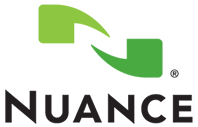Health
No vaccinations or inoculations are compulsory for entry to Turkey. However it is always recommended that you travel with your own preferred brand of medicines and contact your GP for advice before travelling. It is also a good idea to take along something for stomach upsets just in case.
Water
Mains water is chlorinated in towns and cities but it is advisable to drink bottled water.
Time Zone
Turkish Time is two hours ahead of Greenwich Mean Time (GMT +2).
Electricity
The electrical current in Turkey is 220 volts, 50 cycles alternating current (AC); wall outlets take continental-type plugs, with two round prongs.
Currency
The monetary unit is the Turkish Lira (TL), which comes in bank notes of 1, 5, 10, 20, 50, and 100 TL (Turkish Lira). Smaller denominations come in coins of 1 kurus, 5 kurus, 10 kurus, 25 kurus, 50 kurus and 1 TL (1 TL = 100 kurus). ATMs can be found everywhere. All major credit cards or bank cards (a strip of logos is usually displayed above the ATM) are widely accepted. Almost all ATMs have a language key to enable you to read the instructions in English.
Credit cards
The following are widely accepted: MasterCard, Visa and American Express.
Money Exchange
There are 24-hour exchange bureaux (döviz bürosu) in the arrivals halls at International Airports that offer rates comparable to those offered by bureaux in the city. US dollars and euros are easily changed at exchange bureaux. They are also often accepted as payment without being changed. Rates are similar whichever bureau you go to, with the possible exception of those in the tourist precinct of Sultanahmet. Bureaux are open long hours (at a minimum, between 9am and 7pm). You will usually need to show your passport when changing cash.


















